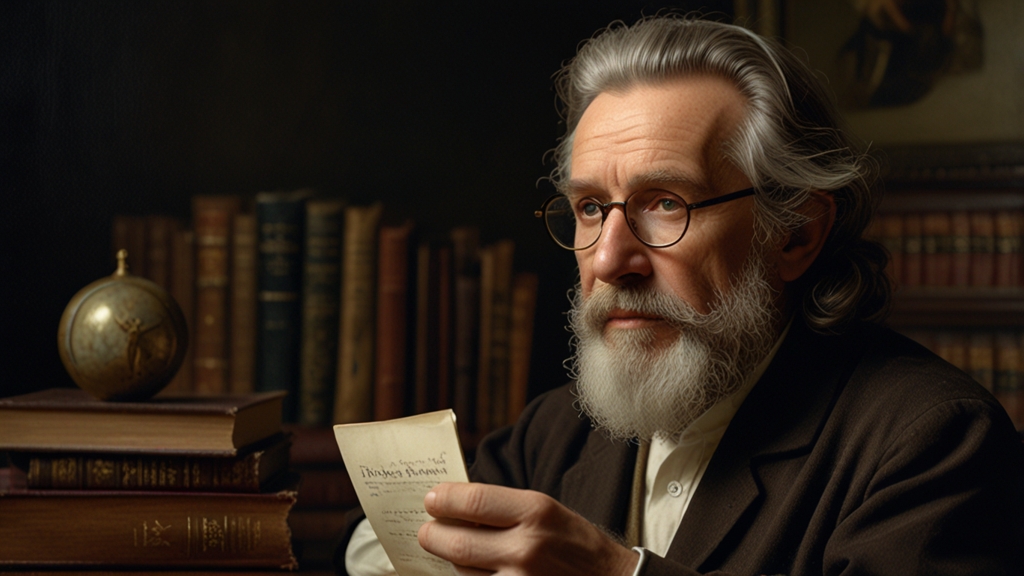Provocative Philosophers: What They Can Teach Us Today
The landscape of philosophy is richly dotted with figures whose thoughts and writings have profoundly challenged the status quo. These provocative philosophers have dared to question the deeply held beliefs, cultural norms, and moral frameworks of their times. Their ideas continue to resonate, offering insights and provocations that are remarkably relevant today. This article delves into the lives and thoughts of some of these philosophers and examines what they can teach us in our contemporary context.
Friedrich Nietzsche: Beyond Good and Evil
Friedrich Nietzsche is often remembered for his declaration that "God is dead." Yet, beyond this provocative statement lies a wealth of ideas that push us to reconsider morality, power, and the essence of human existence. Nietzsche's philosophy challenges the conventional dichotomy of good and evil, urging us to look beyond traditional moral values and create our own.
"He who fights with monsters should be careful lest he thereby become a monster. And if you gaze long enough into an abyss, the abyss will gaze back into you." - Friedrich Nietzsche
In today's world, where moral binaries often lead to division and conflict, Nietzsche's call to transcend simplistic moral judgments is especially pertinent. He compels us to recognize the complexity of ethical situations and encourages individual responsibility for shaping our moral compass.
Simone de Beauvoir: The Second Sex
Simone de Beauvoir’s pioneering work The Second Sex was a landmark in feminist philosophy. Her analysis of the historical and social construction of women's oppression has sparked profound discussions about gender, identity, and freedom.
"One is not born, but rather becomes, a woman." - Simone de Beauvoir
De Beauvoir’s exploration of existentialist themes in the context of gender continues to be a crucial resource in contemporary discourse on equality and identity politics. She teaches us that gender is not a static condition but a constantly evolving role shaped by society. Her work remains a powerful tool for understanding and dismantling systemic gender biases in various aspects of life, from the workplace to personal relationships.
Michel Foucault: Power and Knowledge
Michel Foucault’s work challenged the way we think about power and knowledge. By investigating the relationships between power structures and knowledge systems, Foucault revealed how societal institutions often perpetuate control and normalization.
"Knowledge is not for knowing: knowledge is for cutting." - Michel Foucault
Foucault’s insights are particularly valuable in our information-rich age, where data and knowledge are powerful tools capable of shaping public opinion and behavior. He invites us to critically examine the sources and uses of information, recognizing the underlying power dynamics that govern them. This critical perspective is vital for navigating today's complex media landscape and for advocating for transparency and accountability in all sectors.
The Stoics: Resilience in Adversity
While not as overtly provocative as some of the other philosophers mentioned, the Stoics, including figures like Marcus Aurelius and Epictetus, offer timeless wisdom about enduring hardship and finding peace in adversity. Their teachings on controlling what is within our power and accepting what is not have found a resurgence in modern self-help and psychological wellness movements.
The Stoics teach us to focus on personal resilience and virtue amidst external turmoil. Their emphasis on inner tranquility and rational thinking provides a valuable counterpoint to the stress and anxiety that often accompany contemporary life. By applying Stoic principles, we can cultivate a more balanced and resilient approach to the challenges we face daily.
Conclusion
The provocative philosophers of the past offer us much more than mere academic exercises; they provide powerful lenses through which to view and understand our own world. Nietzsche encourages us to scrutinize our morals; de Beauvoir pushes us to question gender roles; Foucault exposes the power behind knowledge; and the Stoics provide strategies for personal resilience. Engaging with their ideas equips us with the critical tools necessary to navigate an increasingly complex and divided world. By learning from these bold thinkers, we can foster a more thoughtful, ethical, and resilient society.








